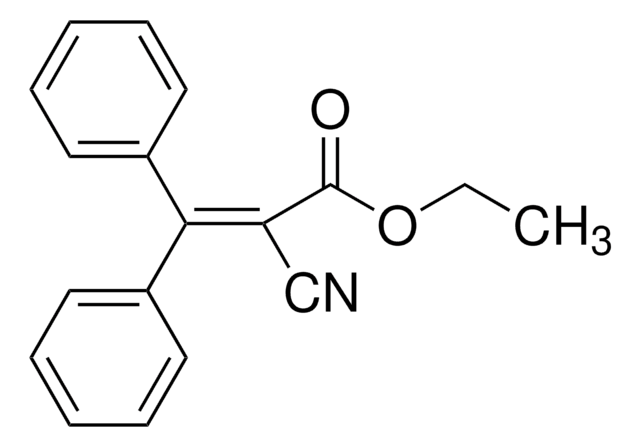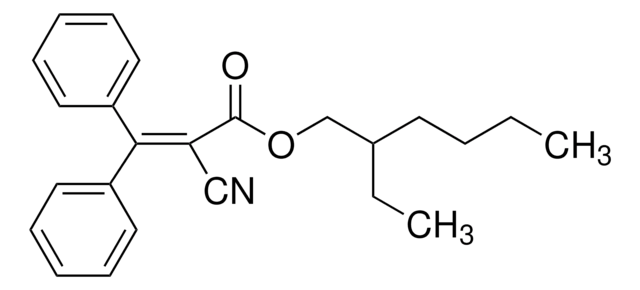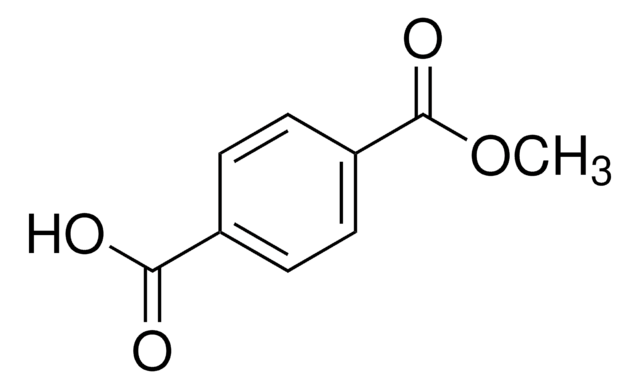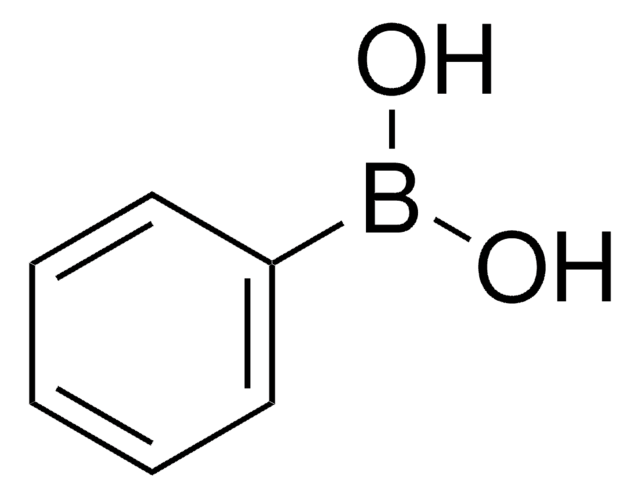SMB00953
2-Cyano-3,3-diphenylacrylic acid
≥95%
Sinónimos:
α-Cyano-β-diphenylacrylic acid, 2-Cyano-3,3-diphenylpropenoic acid
About This Item
Productos recomendados
biological source
synthetic
Quality Level
assay
≥95%
form
solid
mol wt
249.26 g/mol
storage condition
(Tightly closed. Dry.)
technique(s)
HPLC: suitable
color
white to off-white
storage temp.
2-8°C
SMILES string
N#CC(=C(c2ccccc2)c1ccccc1)C(=O)O
InChI
1S/C16H11NO2/c17-11-14(16(18)19)15(12-7-3-1-4-8-12)13-9-5-2-6-10-13/h1-10H,(H,18,19)
InChI key
VSXIZXFGQGKZQG-UHFFFAOYSA-N
General description
Application
Biochem/physiol Actions
Features and Benefits
- High quality compound suitable for multiple research applications
- Compatible with a wide variety of chromatographic and spectrometry techniques
Other Notes
Storage Class
11 - Combustible Solids
wgk_germany
WGK 3
flash_point_f
Not applicable
flash_point_c
Not applicable
Elija entre una de las versiones más recientes:
Certificados de análisis (COA)
It looks like we've run into a problem, but you can still download Certificates of Analysis from our Documentos section.
Si necesita más asistencia, póngase en contacto con Atención al cliente
¿Ya tiene este producto?
Encuentre la documentación para los productos que ha comprado recientemente en la Biblioteca de documentos.
Nuestro equipo de científicos tiene experiencia en todas las áreas de investigación: Ciencias de la vida, Ciencia de los materiales, Síntesis química, Cromatografía, Analítica y muchas otras.
Póngase en contacto con el Servicio técnico





![Hexyl 2-[4-(diethylamino)-2-hydroxybenzoyl]benzoate analytical standard](/deepweb/assets/sigmaaldrich/product/structures/171/239/18149257-0ac2-4ee5-8e7c-b0086ca9ee81/640/18149257-0ac2-4ee5-8e7c-b0086ca9ee81.png)
![[1,1′-Bis(diphenylphosphino)ferrocene]dichloropalladium(II)](/deepweb/assets/sigmaaldrich/product/structures/130/734/8846aa26-1858-458a-998d-8c306c13bf0f/640/8846aa26-1858-458a-998d-8c306c13bf0f.png)

